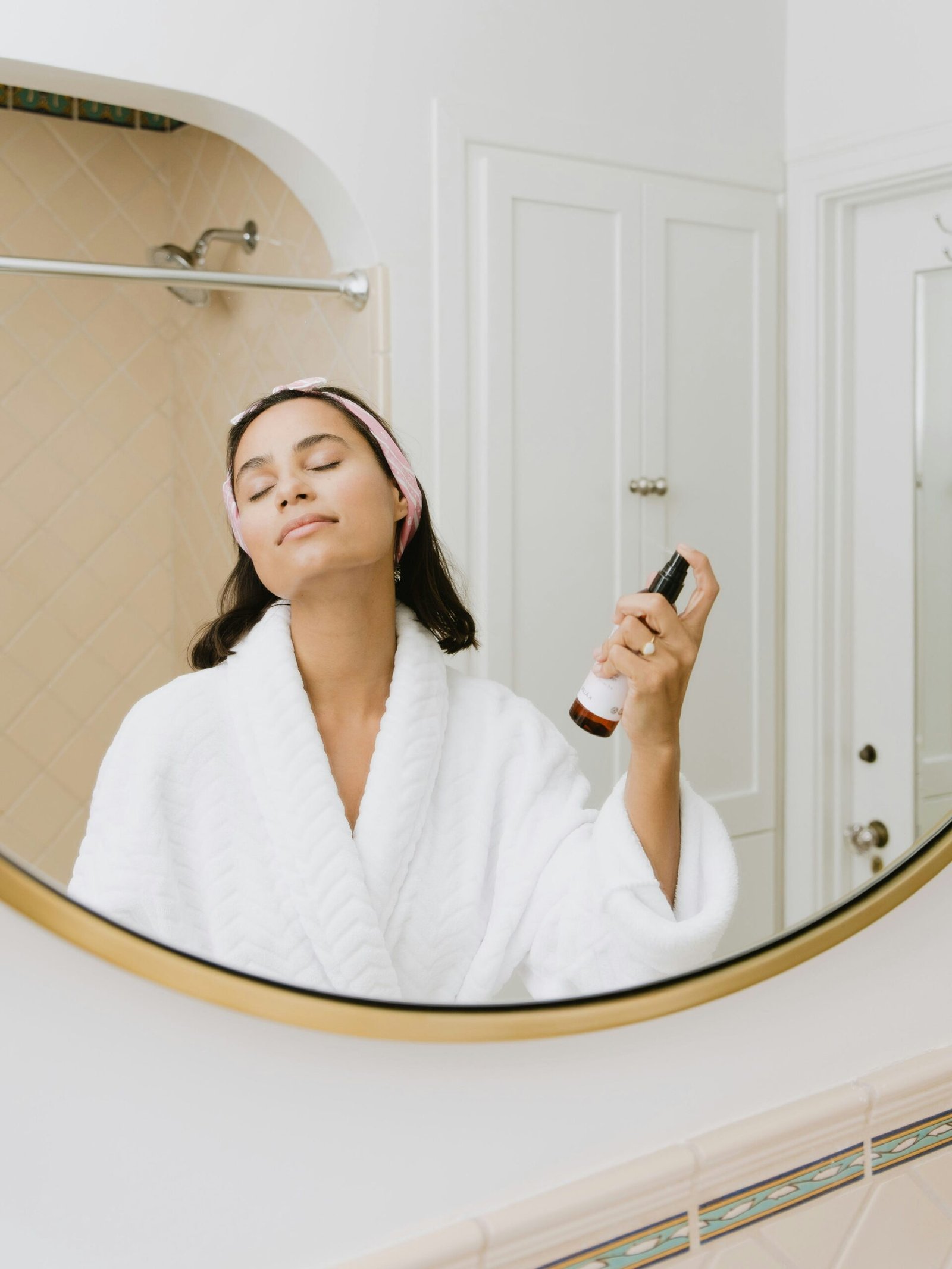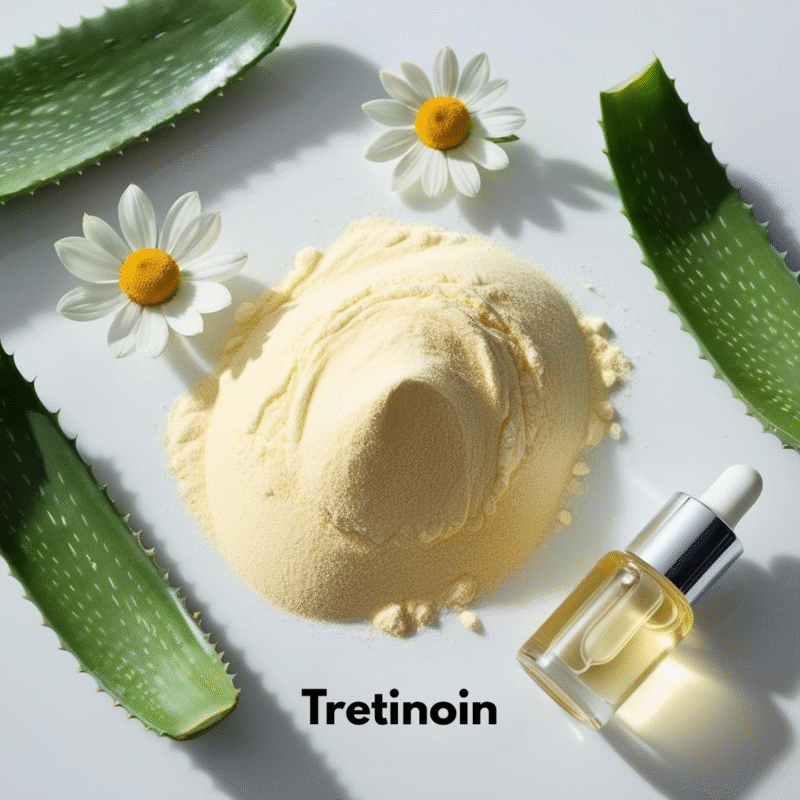Introduction to Skincare in 2025
The landscape of skincare is evolving at an unprecedented rate, driven by advancements in both science and technology. In 2025, we can anticipate a skincare routine informed by innovative research, sophisticated formulations, and an increasing understanding of individual skin needs. This transformation is largely facilitated by the expertise of formula chemistry specialists, who play a crucial role in developing effective products that cater to diverse skin concerns.
As skincare science continues to advance, there is a heightened focus on the biochemistry of the skin, leading to the creation of tailored formulations. These formulations take into account not only common skin types but also specific conditions, resulting in a more personalized approach to skincare. This emphasis on customization is a response to the growing consumer demand for products that deliver tangible benefits, thus reshaping the beauty landscape.
Moreover, awareness around skin health is on the rise. Consumers are increasingly educated about the ingredients that go into their skincare products and are seeking transparency from brands. This shift is influencing research and product development, as scientists and brands work collaboratively to create formulas that are safe, effective, and environmentally sustainable. The integration of cutting-edge technologies, such as artificial intelligence and biotechnology, is transforming the way products are developed and tested, ensuring they meet the evolving needs of the marketplace.
Structured skincare routines are becoming more prevalent, with a focus on not just cleansing and moisturizing, but also incorporating innovative treatments that address specific concerns, such as hyperpigmentation and aging. As we look ahead to 2025, it is clear that the future of skincare will be defined by advancements in scientific research and a consumer-centric approach that prioritizes effectiveness and safety. This foundational shift sets the stage for a more informed public, poised to embrace the skincare innovations of tomorrow.
Key Ingredients to Look For in 2025
As we look toward the future of skincare, several innovative ingredients are projected to shape the industry by 2025. Skincare formulations are increasingly incorporating advanced components that cater to individual skin types and conditions, thus enhancing their efficacy. Among the most promising ingredients expected to dominate the skincare market are biotechnology-derived compounds, antioxidants, and custom-blended formulations that address specific skin needs.
Biotechnology is set to revolutionize the skincare landscape by harnessing living organisms to create ingredients that are not only effective but also sustainable. For example, probiotics and prebiotics are gaining momentum as they help maintain the skin’s microbiome. These components work synergistically to support skin health by promoting a balanced microbiome, which is essential for protecting the skin barrier and reducing inflammation. Research indicates that the application of such ingredients can lead to visibly improved skin texture and a reduction in acne or sensitivity.
Another significant trend is the integration of potent antioxidants into skincare products. Ingredients such as astaxanthin, a naturally occurring carotenoid, are becoming increasingly popular due to their powerful protective properties against oxidative stress. Scientific studies have demonstrated that astaxanthin can improve skin elasticity, reduce the appearance of fine lines, and enhance skin tone. This positions it as a strong candidate for inclusion in anti-aging formulations expected to become mainstream by 2025.
Furthermore, the rise of personalized skincare solutions, enabled by advancements in technology, is paving the way for tailored products that address unique skin characteristics. Utilizing data from skin assessments, brands are developing formulations that precisely target individual concerns, ensuring optimal effectiveness. This personalized approach, supported by clinical trials and scientific research, is anticipated to become a standard in skincare routines in the near future.
Personalized Skincare: Customization Trends
The skincare industry is undergoing a significant transformation, with personalized skincare emerging as a leading trend. As consumers increasingly seek tailored solutions for their unique skin concerns, advancements in technology are making it easier to develop customized skincare routines. This approach often involves the use of genetic testing, skin microbiome analysis, and artificial intelligence (AI) to deliver products specifically suited to an individual’s skin profile.
Genetic testing has paved the way for understanding how our genes influence skin health. By identifying specific genetic markers associated with skin conditions such as aging, sensitivity, or pigmentation, brands can formulate products that target these issues more effectively. This data-driven approach not only empowers consumers to take control of their skincare regimen but also enhances product efficacy, leading to improved results.
Moreover, the analysis of the skin microbiome—the community of microorganisms residing on our skin—has gained traction. Research indicates that a balanced skin microbiome is crucial for maintaining healthy skin. By utilizing microbiome analysis, brands can create customized products that promote the growth of beneficial bacteria while addressing imbalances that may lead to various skin problems. Such targeted solutions have the potential to revolutionize traditional skincare routines, making them more effective and personalized.
Artificial intelligence also plays a pivotal role in the personalization of skincare. AI-driven algorithms can analyze vast amounts of data from different skin types and conditions and offer personalized product recommendations based on user inputs. This not only streamlines the decision-making process for consumers but also helps them discover products that may have otherwise been overlooked. With the continuous evolution of these technologies, the future of skincare promises to be more individualized than ever.
Morning vs. Evening Skincare Routines
As we transition into 2025, the approaches to skincare routines are becoming increasingly tailored to individual needs, particularly in distinguishing between morning and evening rituals. Each time of day poses unique challenges and opportunities for skin health, necessitating different requirements in products and application techniques. Morning skincare routines have a particular emphasis on protection and prevention, where products like broad-spectrum sunscreens and antioxidants play crucial roles. Sunscreen remains fundamental, as it protects against UV damage throughout the day, while antioxidants help neutralize free radicals generated by environmental stressors, such as pollution and sun exposure.
On the other hand, evening skincare routines are designed to prioritize repair and recovery. During the night, the skin undergoes a natural regeneration process, making this the ideal time to apply products rich in active ingredients that promote healing and cell turnover. Ingredients such as retinoids and peptides, known for their ability to enhance skin texture and diminish signs of aging, are best suited for nighttime application. Repair-focused formulas, particularly those containing hyaluronic acid or ceramides, can replenish moisture lost during the day and fortify the skin barrier.
The timing of application also significantly impacts product efficacy. The skin’s permeability is heightened throughout the night, allowing serums and creams to penetrate more deeply and yield better results. In contrast, morning products must be formulated to coexist with makeup and other day-to-day activities, often requiring a lightweight, non-greasy texture to avoid obstructing pores. As we move toward 2025, the understanding of such dynamics will continue to evolve and influence personalized skincare routines, making it essential for individuals to adapt their practices based on the distinct needs of their skin at different times of the day.
Sustainable Practices in Skincare Formulations
The contemporary skincare industry is experiencing a profound shift toward sustainability, driven by an increasingly environmentally conscious consumer base. Skincare brands are becoming acutely aware of the significance of eco-friendly practices, which encompass everything from ingredient sourcing to packaging solutions. Formula chemistry experts are at the forefront of this movement, devising innovative methods to incorporate sustainable practices into skincare formulations.
One of the primary focuses in the realm of sustainable skincare is the sourcing of ingredients. Brands are prioritizing the use of natural, organic compounds that are not only effective but also have a minimal environmental impact. This approach often includes the cultivation of plants through regenerative agriculture practices, which aim to restore the health of the soil and ecosystem, leading to sustainable ingredient growth. Additionally, many companies are now adopting a transparent supply chain model, ensuring that each ingredient is ethically sourced and its origin clearly communicated to consumers.
Moreover, the quest for sustainability extends to packaging innovations. As traditional plastics become increasingly scrutinized for their environmental impact, skincare brands are exploring alternative packaging materials. Recyclable, biodegradable, and compostable options are gaining traction, allowing consumers to reduce their carbon footprint without sacrificing product quality. Some forward-thinking companies are even implementing refill systems, encouraging consumers to reuse containers rather than contributing to a landfill crisis.
Furthermore, the reduction of carbon footprints in skincare production processes is becoming paramount. This includes utilizing renewable energy sources during manufacturing, streamlining logistics to minimize transportation emissions, and optimizing formulations to avoid waste. By aligning product development with environmental responsibilities, skincare brands can foster a more sustainable future. This trend reflects a significant shift in consumer priorities, as knowledgeable shoppers increasingly seek products that not only enhance their beauty routines but also contribute positively to the planet.
Tech Innovations in Skincare: Devices and Apps
The skincare industry has witnessed a remarkable transformation with the integration of technology, giving rise to an array of innovative devices and applications. These advancements aim to enhance consumers’ skincare routines by allowing them to monitor their skin health more effectively. One of the most notable developments in this arena is the emergence of wearable devices. These gadgets, such as smartwatches and skin patches, can track various skin metrics, including moisture levels, UV exposure, and even skin temperature. By collecting this data, users gain valuable insights into their skin’s health, leading to more informed decisions about their skincare regimens.
In addition to wearables, AI-powered skin analysis applications are becoming increasingly popular. These apps utilize advanced algorithms to analyze images of users’ skin, identifying issues such as acne, pigmentation, or fine lines. By delivering personalized skincare recommendations based on this analysis, these applications empower consumers to tailor their routines to their specific needs. Furthermore, many of these apps integrate seamlessly with other smart devices, enabling continuous monitoring of skin health over time.
Smart skincare tools have also emerged as essential components of modern routines. Devices such as LED masks, ultrasonic cleansers, and microdermabrasion tools utilize cutting-edge technology to enhance product absorption and improve skin texture. More importantly, these smart tools often come equipped with mobile applications that help users track their progress and adjust their usage for maximum efficacy. By harnessing the power of technology, these innovations are revolutionizing the way consumers approach their skincare, making their routines more efficient and tailored to individual needs.
As we look toward the future, it is evident that the integration of technology into skincare will continue to evolve, providing users with powerful tools that improve their understanding of skin health and the effectiveness of their skincare products.
Common Skincare Myths Debunked
In the realm of skincare, misinformation can lead to confusion and misguided practices. Many consumers fall prey to common myths that can skew their understanding and expectations regarding effective skincare routines. One prevalent myth is that expensive products are inherently superior to their more affordable counterparts. However, a number of skincare experts emphasize that the efficacy of a product largely depends on its active ingredients and formulation rather than its price tag. Dermatologists often recommend seeking products with well-researched ingredients instead of simply relying on high cost as a marker of quality.
Another frequently discussed misconception is that high-SPF sunscreens provide complete and long-lasting protection. While SPF is vital in preventing skin damage, it is essential to understand that no sunscreen offers 100% protection, and reapplication is crucial for effectiveness. This means one should be diligent in reapplying sunscreen every two hours, especially after swimming or sweating. Additionally, it is a common belief that oily skin does not require moisturizing. In fact, all skin types, including oily skin, benefit from hydration. Many oil-free and lightweight moisturizers are suitable for oily skin, helping to maintain a balanced complexion without clogging pores.
Moreover, some consumers assume that a skincare routine must include an extensive assortment of products for it to be effective. However, skincare experts often highlight the importance of a simplified routine. A few key products tailored to individual skin types and specific concerns can yield better results than overwhelming the skin with numerous products. Finally, it is a misconception that natural ingredients are always safe and more effective. While many natural ingredients can be beneficial, some may be irritating or cause allergic reactions, making it vital to consider individual skin sensitivities. By debunking these myths and clarifying truths, consumers can make more informed choices in their skincare journey.
The Role of Diet and Lifestyle in Skincare
The impact of diet and lifestyle on skin health is becoming increasingly recognized in the realm of skincare. A holistic approach that incorporates proper nutrition, hydration, and general well-being is essential for achieving optimal skin health. The foods we consume play a critical role in our skin’s appearance and resilience. A balanced diet rich in antioxidants, vitamins, and essential fatty acids can significantly contribute to improved skin vitality. For instance, fruits and vegetables not only provide hydration but also supply important nutrients that help combat oxidative stress, which can lead to premature aging.
Hydration, in particular, is paramount for maintaining skin elasticity and reducing the appearance of fine lines. Adequate water intake supports skin hydration from within, while topical moisturizers act as barriers to prevent water loss. It is advisable to aim for a fluid intake spread throughout the day, ensuring that the skin remains plump and nourished.
Stress management also plays a critical role in maintaining healthy skin. High-stress levels can trigger various skin issues, including acne, eczema, and psoriasis. Incorporating relaxation techniques such as meditation, yoga, or deep-breathing exercises can help mitigate stress and subsequently improve skin conditions. Furthermore, the importance of sleep in skin rejuvenation cannot be overstated; adequate rest allows the skin to repair itself and can enhance the effectiveness of any skincare routine.
In conclusion, the intersection of diet, lifestyle habits, and skincare routines significantly influences skin health. By prioritizing hydration, nutritious food choices, effective stress management, and restful sleep, individuals can adopt a comprehensive approach to enhance their skincare results. This holistic perspective encourages not just beautiful skin, but overall wellness, ultimately creating a skincare routine that is effective and sustainable for years to come.
Final Thoughts and Expert Predictions
As we look toward the future of skincare, experts predict an ongoing transformation that will be influenced by advancements in technology and an evolving understanding of skin biology. By 2025 and beyond, we anticipate a more personalized approach to skincare driven by significant developments in data analytics and artificial intelligence. These innovations will enable brands to offer tailored solutions that cater to individual skin types and concerns, thereby enhancing overall effectiveness and satisfaction.
Furthermore, ongoing research in formula chemistry promises to yield groundbreaking ingredients that are not only effective but also environmentally sustainable. The quest for clean, green formulations will continue to shape product development, as consumers increasingly seek transparency and ethical practices from their skincare brands. Expect to see a rise in multifunctional products that combine multiple benefits into one, reducing the number of products needed in a routine and promoting minimalism in personal care.
In addition, the integration of wellness into skincare is likely to gain traction, with an emphasis on holistic approaches that consider mental well-being alongside physical health. The relationship between skin health and lifestyle factors will become more prominent, leading to the incorporation of nutritional elements into skincare routines. This convergence of skincare and wellness not only aligns with consumer preferences but also encourages a more comprehensive understanding of self-care.
Finally, the influence of social media and digital platforms will remain strong, allowing consumers to engage with brands and share their experiences more than ever before. This shared knowledge will play a crucial role in shaping trends and expectations within the skincare industry. With all these factors at play, the future of skincare promises to be a dynamic landscape filled with innovative solutions and consumer-driven changes.



